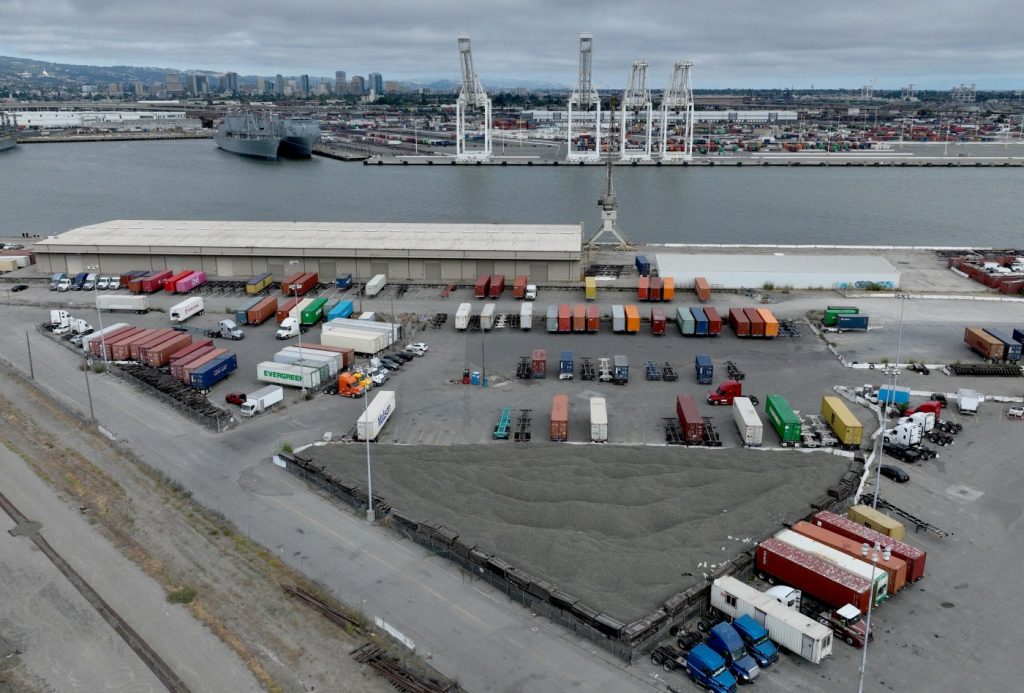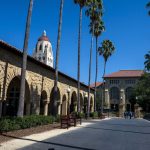Land developer Phil Tagami said he got what he wanted after the last battle in the Oakland “coal war,” but now his corporate partner wants a piece of the legal action — to the tune of at least $1 billion in damages.
In a lawsuit filed Monday, Insight Terminal Solutions, a company owned by a Southern California hedge fund, claims city officials illegally breached ITS’ sublease to build a West Oakland marine terminal that would ship bulk goods overseas.
The company changed hands in recent years after a 2019 bankruptcy filing, but it historically has been linked to the coal industry and could potentially store the pollutive substance within city limits if the 34-acre terminal is ever constructed.
Coal, though, hits close to home for West Oakland residents who say their life expectancies have been reduced by a long history of industrial pollution — so city officials have fought for over a decade to prevent the substance from being shipped through the port.
Tagami, who is not a party to ITS’ lawsuit against the city, already received a favorable ruling from a judge in January to continue pursuing the terminal after the city had tried to void his lease.
The longtime East Bay land developer maintains his goal was always to pursue the terminal, and that he would never simply accept monetary damages and walk away — largely due to his contractual obligations to ITS.
Still, the damages offered by a judge during Tagami’s recently concluded trial amounted to a mere $318,000 — far less than the millions that consultants for his firm, Oakland Bulk and Oversized Terminal, had suggested he was owed.
ITS hopes to have more luck. The company is suing Oakland in federal bankruptcy court in Kentucky, where a judge previously described the city’s public opposition to the terminal project as an “overburden,” according to the legal complaint.
Phil Tagami, Oakland developer and Chief Executive Officer of California Capital Investment Group, and Principal and Executive of Concord First Partners, heads back to his seat during their Naval Weapons Station development presentation before the Concord City Council in Concord, Calif., on Saturday, Jan. 7, 2023. (Ray Chavez/Bay Area News Group)
“Defendant’s conduct actually interfered with, and caused actual disruption to, Plaintiff’s economic relationships, and directly and substantially harmed Plaintiff in the form of lost business opportunities, potential profits, and other economic advantages or benefits reasonably expected from the relationship,” the complaint states.
City officials did not immediately respond to a request for comment on the lawsuit. Tagami also declined to be interviewed because he isn’t a party to the lawsuit.
ITS has faced rough financial waters the past decade, having once been owned by the late Kentucky coal executive John Siegel, who had partnered with Tagami a decade ago to ship coal through the Oakland marine terminal.
After earlier approving Tagami’s ground lease at the terminal site, Oakland officials attempted to ban the shipment and storage of coal in 2016, leading to a series of costly lawsuits in which the developer has largely emerged victorious.
Siegel declared bankruptcy in 2019 — a filing that the lawsuit claims was directly caused by the city’s efforts to halt the terminal’s construction — and later died from cancer.
ITS’ sublease to operate the West Oakland terminal was then acquired by JMB Capital, a Los Angeles-based hedge fund operated by businessmen Jon Brooks and Vikas Tandon, who had previously told the city that they weren’t so keen on prioritizing coal over other goods.
The city briefly entered settlement discussions with Tagami where officials pressed for a “no coal” agreement, but the talks quickly fell through and an Alameda County judge ruled in January that the terminal’s construction could move forward.
Protesters march along Portal Avenue to the home of developer Phil Tagami to rally against a coal terminal at the Port of Oakland on Monday, Oct. 30, 2017, in Oakland, Calif. Tagami sued the city of Oakland after the City Council voted to ban the transport of coal through Oakland in 2016. (Aric Crabb/Bay Area News Group)
Still, the issue has taken on significant political importance in West Oakland, where environmental advocates believe bulk quantities of coal stored at the terminal would lead coal dust to mix with the air and worsen the notoriously bad air pollution. A federal court judge in 2018 disagreed that this was a concern.
Emergency room visits or hospitalizations for asthma are two times higher in West Oakland than the rest of Alameda County, according to a 2018 county study that activists have ascribed to poor air quality.
In past interviews, Tagami has insisted that the decision of what eventually gets shipped from the marine terminal would be made by ITS, not by him, and based solely on market demands.
Greg McConnell, a local representative for ITS, has sought to place the blame on Oakland for a long and messy legal war.
“The shame of all this is that the city could’ve settled the case,” McConnell said, referring to the short-lived 2022 settlement talks, whose details never became public. “Now here we are.”


